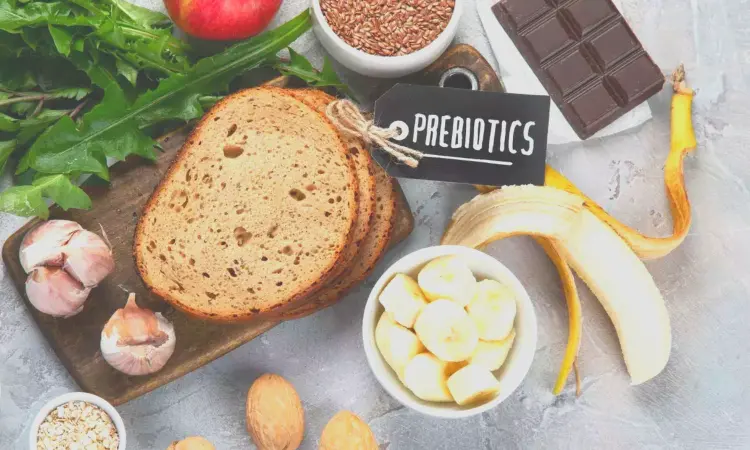- Home
- Medical news & Guidelines
- Anesthesiology
- Cardiology and CTVS
- Critical Care
- Dentistry
- Dermatology
- Diabetes and Endocrinology
- ENT
- Gastroenterology
- Medicine
- Nephrology
- Neurology
- Obstretics-Gynaecology
- Oncology
- Ophthalmology
- Orthopaedics
- Pediatrics-Neonatology
- Psychiatry
- Pulmonology
- Radiology
- Surgery
- Urology
- Laboratory Medicine
- Diet
- Nursing
- Paramedical
- Physiotherapy
- Health news
- Fact Check
- Bone Health Fact Check
- Brain Health Fact Check
- Cancer Related Fact Check
- Child Care Fact Check
- Dental and oral health fact check
- Diabetes and metabolic health fact check
- Diet and Nutrition Fact Check
- Eye and ENT Care Fact Check
- Fitness fact check
- Gut health fact check
- Heart health fact check
- Kidney health fact check
- Medical education fact check
- Men's health fact check
- Respiratory fact check
- Skin and hair care fact check
- Vaccine and Immunization fact check
- Women's health fact check
- AYUSH
- State News
- Andaman and Nicobar Islands
- Andhra Pradesh
- Arunachal Pradesh
- Assam
- Bihar
- Chandigarh
- Chattisgarh
- Dadra and Nagar Haveli
- Daman and Diu
- Delhi
- Goa
- Gujarat
- Haryana
- Himachal Pradesh
- Jammu & Kashmir
- Jharkhand
- Karnataka
- Kerala
- Ladakh
- Lakshadweep
- Madhya Pradesh
- Maharashtra
- Manipur
- Meghalaya
- Mizoram
- Nagaland
- Odisha
- Puducherry
- Punjab
- Rajasthan
- Sikkim
- Tamil Nadu
- Telangana
- Tripura
- Uttar Pradesh
- Uttrakhand
- West Bengal
- Medical Education
- Industry
Focused nutrition improves cardiovascular health of schizophrenic patients: BMC

In a new study conducted by Alfonso Sevillano-Jimenez and team found that in patients with schizophrenia spectrum illness, the implementation of a nutritional program aimed at boosting dietary prebiotic and probiotic content significantly improves the cardio-metabolic profile. The findings of this study were published in BMC Psychiatry
The discovery of novel etiological hypotheses, such the microbiota-gut-brain axis hypothesis, shows the impact of dietary and nutritional habits on mental health, which in turn affects the patient's quality of life in terms of their physical and cardiovascular health. In the context of the SARS-CoV-2 period, the objective of this study was to ascertain the effect of a dietary program targeted at increasing the intake of prebiotic and probiotic food on cardio-metabolic state in people with schizophrenia spectrum disorders.
50 people with schizophrenia spectrum disorder were the subject of a randomized clinical study (two-arm, balanced-block, double-blind, six-month intervention) during the SARS-CoV-2 quarantine period. Individual conventional dietary counseling was provided to the control group. An individualized nutritional education program with a high prebiotic and probiotic content (dairy and fermented foods, high-fibre fruit, green leafy vegetables, whole grains, etc.) was developed for the intervention group. At the beginning, three, and six months, information on cardiovascular state was gathered. Anthropometric measurements were also examined monthly.
The key findings of this study were;
1.Following follow-up, 44 patients underwent analysis.
2.At the beginning of the intervention and after six months, all anthropometric indicators showed statistically significant changes (p 0.05).
3.A clinically meaningful improvement (lower in cardiovascular risk) was seen in the intervention group at six months as a result of a 27.4% drop in the prevalence of the risk factors associated with the metabolic syndrome across all of its components.
In conclusion, In the context of the global SARS-CoV-2 pandemic, the development of a dietary-nutritional intervention with a high symbiotic content in patients with schizophrenia spectrum disorders has been postulated as an effective and clinically significant therapy for lowering cardiovascular risk factors and improving metabolic outcomes. These dietary suggestions may act as an adjuvant in people with schizophrenia spectrum disorders who have metabolic syndrome, increasing pharmaceutical tolerance and enhancing physical health. By serving as a cornerstone of the multimodal approach and moderating lifestyles through dietary-nutritional education, nursing plays a significant role in obtaining optimal health outcomes.
Reference:
Sevillano-Jiménez, A., Romero-Saldaña, M., García-Mellado, J. A., Carrascal-Laso, L., García-Rodríguez, M., Molina-Luque, R., & Molina-Recio, G. (2022). Impact of high prebiotic and probiotic dietary education in the SARS-CoV-2 era: improved cardio-metabolic profile in schizophrenia spectrum disorders. In BMC Psychiatry (Vol. 22, Issue 1). Springer Science and Business Media LLC. https://doi.org/10.1186/s12888-022-04426-9
Neuroscience Masters graduate
Jacinthlyn Sylvia, a Neuroscience Master's graduate from Chennai has worked extensively in deciphering the neurobiology of cognition and motor control in aging. She also has spread-out exposure to Neurosurgery from her Bachelor’s. She is currently involved in active Neuro-Oncology research. She is an upcoming neuroscientist with a fiery passion for writing. Her news cover at Medical Dialogues feature recent discoveries and updates from the healthcare and biomedical research fields. She can be reached at editorial@medicaldialogues.in
Dr Kamal Kant Kohli-MBBS, DTCD- a chest specialist with more than 30 years of practice and a flair for writing clinical articles, Dr Kamal Kant Kohli joined Medical Dialogues as a Chief Editor of Medical News. Besides writing articles, as an editor, he proofreads and verifies all the medical content published on Medical Dialogues including those coming from journals, studies,medical conferences,guidelines etc. Email: drkohli@medicaldialogues.in. Contact no. 011-43720751


